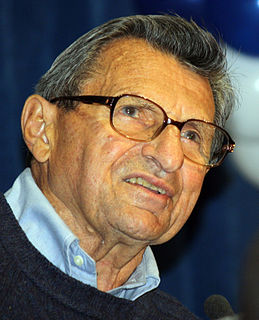A Quote by Amos Bronson Alcott
Observation more than books and experience more than persons, are the prime educators.
Quote Topics
Related Quotes
Young persons, because of their immaturity, may not fully comprehend the consequences of their actions and should therefore benefit from less severe sanctions than adults. More importantly, it reflects the firm belief that young persons are more susceptible to change, and thus have a greater potential for rehabilitation than adults.
Rather than becoming more relaxed, you start pulling down the shades and locking the door. When you do go out, you find the experience more and more unsettling and disagreeable. You become touchier, more fearful, more irritable than ever. The more you try to get it your way, the less you feel at home.
If those persons, who fancy themselves gifted with both the power and the right to define and punish other men's vices, would but turn their thoughts inwardly, they would probably find that they have a great work to do at home; and that, when that shall have been completed, they will be little disposed to do more towards correcting the vices of others, than simply to give to others the results of their experience and observation.
When we enter the landscape to learn something, we are obligated, I think, to pay attention rather than constantly to pose questions. To approach the land as we would a person, by opening an intelligent conversation. And to stay in one place, to make of that one, long observation a fully dilated experience. We will always be rewarded if we give the land credit for more than we imagine, and if we imagine it as being more complex even than language. In these ways we begin, I think, to find a home, to sense how to fit a place.
They would make the 'Church ' their great meeting-point, rather than the Atonement of Christ. As far as my experience goes, they have more devoutness and less devotion, more fear and less love, more feeling of duty than of desire, laying more stress on Phil. ii. 12 than ver. 13, and in practice working upon the intellect and imagination rather than aiming at the heart, skirmishing among the outworks rather than assaulting the citadel.
The longer I live the more I realize the impact of attitude on life. Attitude, to me, is more important than facts. It is more important than the past, than education, than money, than circumstances, than failures, than successes, than what other people think or say or do. It is more important than appearance, giftedness or skill. It will make or break a company . . . a church . . . a home.




































